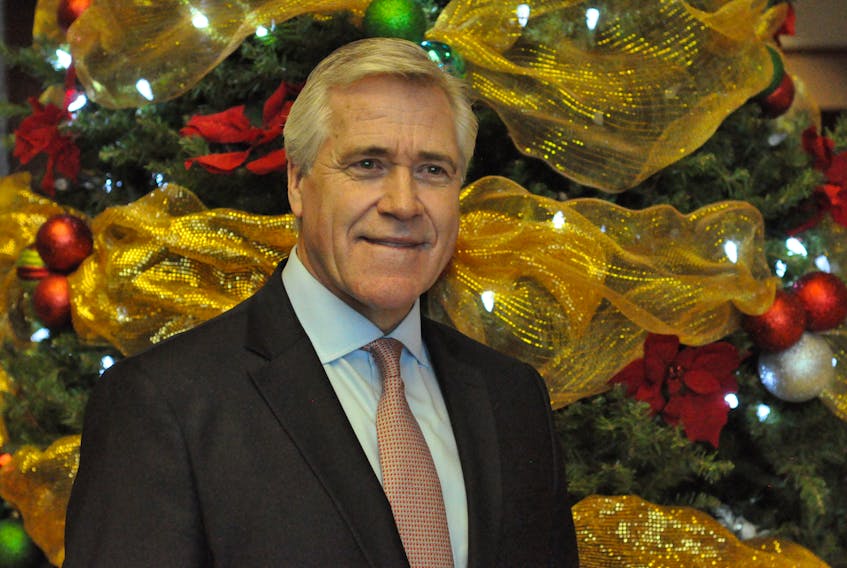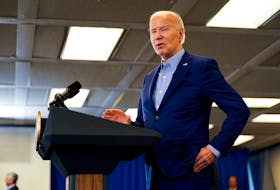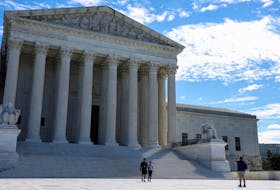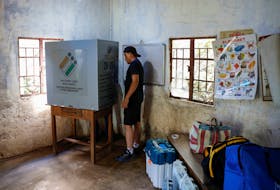Speaking to The Telegram by phone from Corner Brook, where he was looking out at a winter storm, Premier Dwight Ball described a province making its way through a different kind of storm.
In the traditional year-end interview with The Telegram, the premier referred to the April 2016 budget, with its tax hikes and fee increases — something he consistently describes as a necessity, given the state of provincial finances.
“In 2017 we were finally in a place where we could actually start delivering on some of the commitments that were made,” he said.
In terms of the House of Assembly, there were a few items to mention.
“I think if there’s one that really stands out to me, I’m very proud to get the seniors’ advocate in place, but also the fact that we’ve looked at impaired drivers and made a very loud, I would say, sounding impact to say if you want to sit behind that wheel and you want to think about being impaired, well in this province right now you’re going to pay for it. There’s a consequence to it,” he said, referring to changes to the Highway Traffic Act.
Ball mentioned the introduction of the gender-neutral birth certificates and, beyond the House, the final report and beginning of response to the premier’s task force on educational outcomes. He said he expects people to be looking to that latter piece of work years from now, alongside full-day kindergarten, marking a point of significant change for the education system in Newfoundland and Labrador.
Federal policy, provincial follow-up
From the assessments of offshore projects under the Canadian Environmental Assessment Act, to proposed changes to federal taxation, communicating with the federal government throughout 2017 has been essential, he said.
He acknowledged federal policies — on cannabis and carbon — will demand more provincial person hours and legislative time through 2018.
On carbon pricing, the premier was asked about the timeline. He said this province is looking to meet the federal requirements using a hybrid approach, addressing two distinct areas — offshore oil operations and onshore emissions.
Offshore, “I do not necessarily want to put a cap on carbon because it would reduce the economic development opportunities and we know there is a large resource out there yet that is virtually untapped,” he said.
Onshore, he reiterated the previously reported commitment not to compound taxation — referring to the hike in gas tax introduced by the Liberals in 2016 to bring in more revenue. That tax has been reduced since, but is not yet entirely wiped out.
The overall proposal for addressing greenhouse gas emissions is being worked through with the federal government. If there isn’t an agreement by the end of 2018, the feds have made it clear they will respond by forcing a more generic plan.
On cannabis, the premier said it is clear to him the federal plan remains to have legalization for recreational use in July 2018, but not necessarily on July 1.
The House of Assembly still needs to address detection and handling of impaired drivers, and workplace and public safety.
“I would anticipate that this spring session of the House of Assembly you will see a lot of legislation around cannabis,” Ball said.
More looking ahead
The premier mentioned the West White Rose extension project, announced in May 2017, with its more than $3 billion in direct benefits expected to flow to the province in royalties, equity and taxes. First oil is expected in 2022.
That project will offer some local jobs. And Ball said jobs — including jobs resulting from economic diversification — will be a focus for the Liberals through 2018.
In January, he said, people can expect more from the government on how it sees innovation — in tech companies and traditional businesses — playing a greater role.
Ball said he has high hopes for an oceans-focused supercluster innovation hub for the Atlantic region, under the federal government’s $950-million program. Funding recipients are expected to be announced in March.
At the end of 2017, the premier said, there is a greater understanding outside of government of the province’s economic challenges, but also a greater interest from labour, business and individuals in being a part of the response.
“True to form for Newfoundlanders and Labradorians, they’ve seen the challenge, they’re not going to back down,” he said.
Asked about public-sector union negotiations, he was not sharing any details beyond what has been reported to date.
And on the coming inquiry into the Muskrat Falls hydroelectric project, Ball said he will testify if called upon, and he hopes the inquiry will contribute to a restoration of public confidence in government, while addressing the approach to big, public-policy decisions impacting generations.









